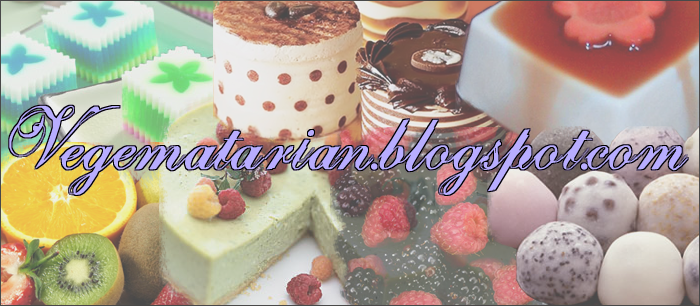Kosher
I know people have told you kosher does not help you determine whether or not certain food are vegetarians, but if you do more research on kosher food and laws, it can actually quite a bit. Ok lets start off with the rules...
- What is kosher? Kosher is something that is acceptable under the Jewish law, mainly referring to food.
- What are Kosher food? Kosher food are food that meet the requirement of the Jewish law.
- What is Parve? It is when the food is not derived from meat or dair
- Kosher meat- This include Poultry and Land Mammalsr.Land Mammals: All those that are both hoofed and chew their crud are kosher. Examples of Kosher land animals: Cow, deer, giraffe.Examples of Non kosher land animals: pigs-hoofed but don't chew their crud. Hare- chew their crud but has no hoofs.Poultry: It is not clearly specified but most birds are kosher except but scavenger birds are considered as non kosher.Animal Fat: "chelev" fat surrounding vital organs are not kosher but animal fat are kosher.
- Kosher Parve- Food that are not derived from meat or dairy.
- Vegetable: All vegetables are considered kosher except for those that have been found with insects and worms.
- Seafood: Seafood that has scales and fin are kosher, meaning fish. Fish are considered parve, not meat or dairy. Shellfish, sharks dolphin are non kosher because they have no fins or scales.
- Unknown- Sorry I'm not sure whether this is considered meat or parve.
- insects: Certain "winged" insects are considered kosher under different Jewish tradition who believe differently but a majority are non kosher.
- What are the Kosher symbols?
- OU a circle with a U in the middle, or K means means that the product is kosher and it's parve. Parve can include both fish and eggs so watch out.
- OU and a D next to it means that it is kosher and it contains milk. D meaning Dairy.
- OU and a M next to it means that it is kosher and has meat derivative. M meaning meat.
Obviously it has a lot to do with vegetarians, why else would I be posting this?
- OUD means there are some type of dairy in it but it's kosher. It still might have a possibilty of having fish or eggs in it since fish and eggs are considered parve.
- Fish derived items
- Vitamin A palmitate- Fish oil
- Vitamin D3- Mostly lanolin oil [derived from sheep wool] and sometimes fish oil
- Kosher Gelatin- Fish bones
- OUM means meat derived so stay clear of this item even if it doesn't seem like it has any meat in the ingredient list.
- If it's OUD or K or OU and it has mono-diglyceride or glycerin, you know it's vegetable derived and not meat derived since glycerin and glyceride are derived from hogs and cows. Even if it was derived from cows (kosher meat) it would have a OUM on it. Well you can look at natural flavoring the same way as you do with glyceride and glycerin but remember natural flavoring can be obtain from fish. If you want to risk that...so be it.
- CHEESE!!! If the cheese has OUD on it, it means it uses vegetable or microbe rennet. There are two reason, one being that animal rennet is a meat derived, so it cant be eaten with dairy ( jewish law says it's not kosher to eat meat with dairy). The second reason is that it would have to have a OUM on it if it is from meat but the 1st reason makes it impossible for a cheese factory to even label it OUM.
- Whey would not be extracted through the usage of animal enzyme if the product is OUD since the enzyme is derived from calves and calves are meat.
Sources: wikipedia-kosher, Judism 101, VRG, Dairy House, Vegetarian-Restaurant


